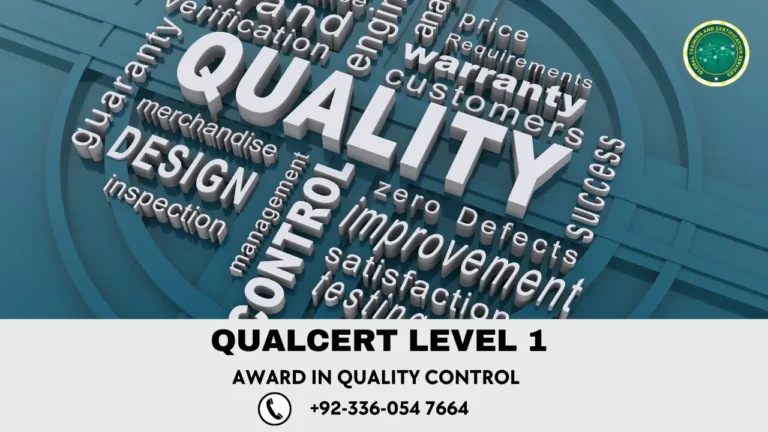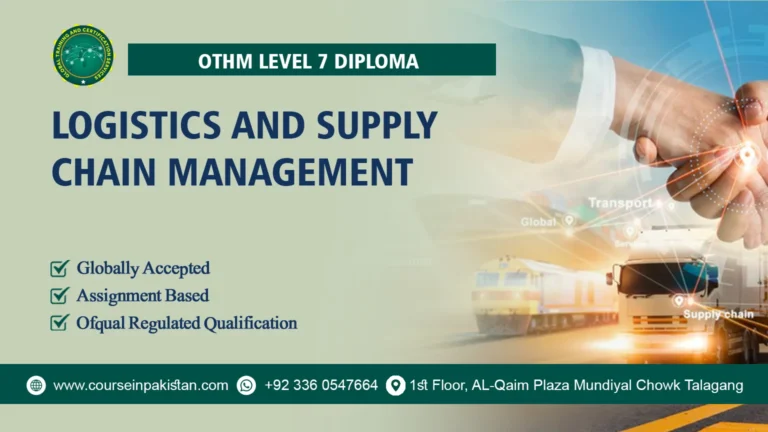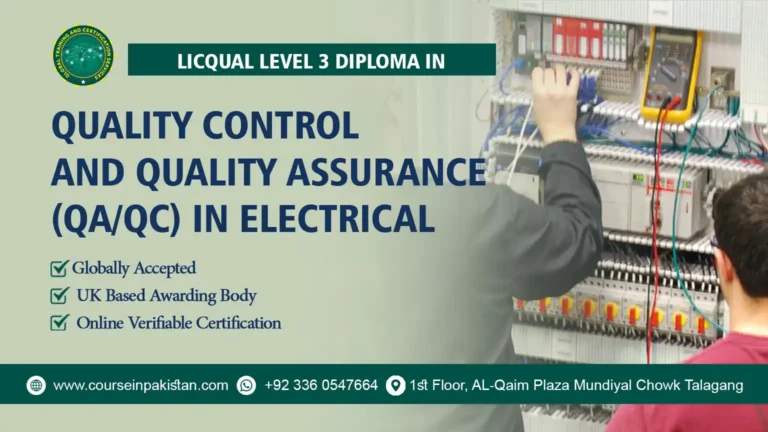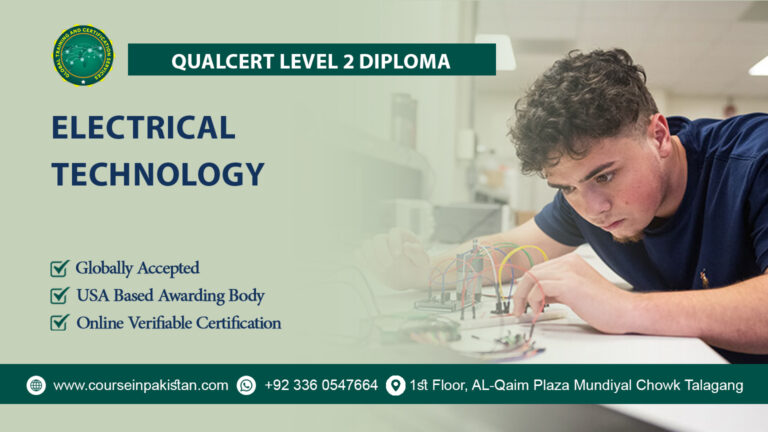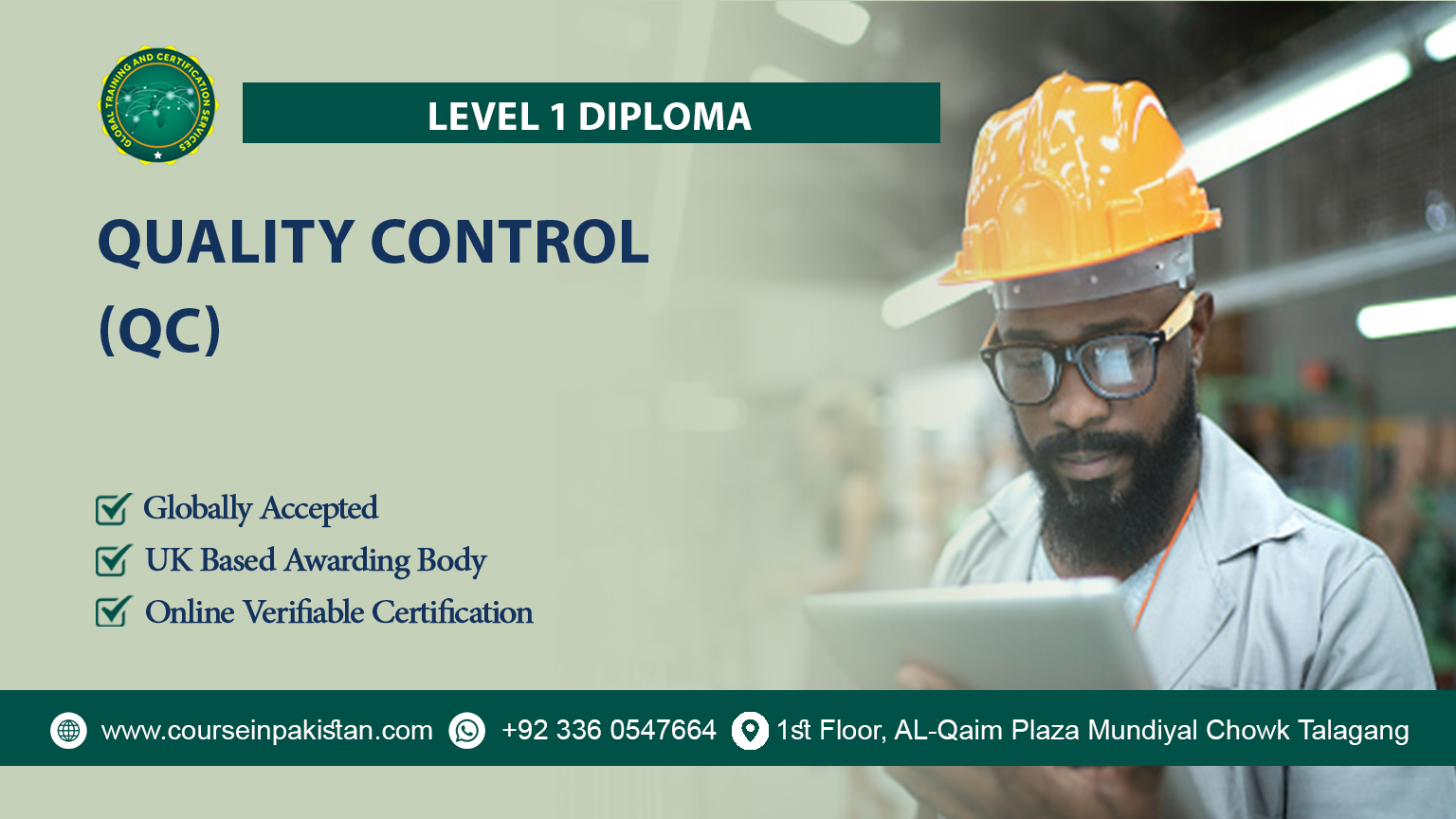
Level 1 Diploma in Quality Control (QC)
Quality control is a cornerstone of excellence in any industry, ensuring that products and services consistently meet or exceed customer expectations. The Level 1 Diploma in Quality Control (QC) is a comprehensive program designed to equip participants with the knowledge and skills necessary to excel in the field of quality assurance. Whether you are new to quality control or seeking to advance your career, this diploma provides a solid foundation in understanding, implementing, and managing quality control processes.
The Level 1 Diploma in QC offers a structured approach to mastering quality control practices. Participants will delve into essential concepts, methodologies, and tools vital for ensuring products and services meet rigorous quality standards. This diploma not only enhances technical competencies but also fosters critical thinking and problem-solving skills crucial for effective quality management.
Throughout the diploma program, participants will explore a comprehensive range of topics:
- Introduction to Quality Control: Principles, objectives, and historical evolution of quality control.
- Quality Standards and Regulations: Compliance with national and international quality standards.
- Quality Control Tools and Techniques: Application of statistical tools, control charts, and quality improvement methodologies.
- Inspection and Testing Methods: Techniques for assessing product/service quality and reliability.
- Documentation and Reporting: Effective documentation practices to ensure traceability and accountability.
- Quality and Safety: Integration of quality control with workplace safety and ethical standards.
- Quality Control in Practice: Real-world applications and case studies demonstrating effective quality control implementation.
- Quality Control Skills Development: Practical skills development in quality inspection, defect analysis, and corrective actions.
- Final Assessment and Certification: Evaluation of knowledge and skills acquired through a comprehensive final assessment.
Course Benefits
- Comprehensive Knowledge: Gain in-depth understanding of quality control principles and methodologies.
- Enhanced Skills: Develop practical skills in using quality control tools and techniques.
- Career Advancement: Increase employability in quality assurance roles across various industries.
- Industry Recognition: Earn a globally recognized diploma validating proficiency in QC.
- Professional Growth: Prepare for leadership roles in quality management and continuous improvement initiatives.
Course Study Units
- Introduction to Quality Control
- Basic Quality Concepts
- Quality Control Tools and Techniques
- Quality Standards and Regulations
- Quality Inspection and Testing Methods
- Quality Management Systems (QMS)
- Advanced Problem-Solving
- Statistical Analysis in Quality Control
- Quality Control Documentation and Reporting
- Quality and Safety Integration
- Quality Assurance and Continuous Improvement
Learning Outcomes
Upon successful completion of the Level 1 Diploma in Quality Control (QC) course, participants will achieve the following learning outcomes, equipping them with essential skills and knowledge in quality control:
- Comprehensive Understanding: Gain a thorough understanding of the principles, concepts, and methodologies in quality control.
- Quality Control Tools Mastery: Become proficient in using various QC tools, including statistical analysis, root cause analysis, and process improvement techniques.
- Quality Standards and Regulations: Develop in-depth knowledge of industry-specific quality standards and regulations to ensure compliance.
- Inspection and Testing Expertise: Acquire advanced skills in inspection, testing, and precision measurement using specialized equipment.
- Advanced Problem-Solving: Address complex quality issues using advanced methodologies like Six Sigma DMAIC and 8D.
- Statistical Analysis Proficiency: Apply statistical analysis for data-driven decision-making, including hypothesis testing and regression analysis.
- Quality Management Systems (QMS): Understand, implement, and improve systems such as Six Sigma, Lean, and TQM.
- Documentation and Reporting Excellence: Maintain accurate records and communicate findings effectively.
- Safety and Quality Integration: Understand the critical link between safety and quality, ensuring workplace safety in QC practices.
- Leadership in Continuous Improvement: Lead and drive quality improvement efforts within organizations.
- Ethical Considerations: Emphasize honesty, transparency, and integrity in QC practices.
- Capstone Project Success: Apply QC principles to real-world scenarios through a successful capstone project.
- Industry Relevance: Gain industry-specific knowledge, making graduates valuable assets in QC roles.
- Foundation for Further Education: Establish a strong foundation for further studies or professional certifications in quality control.
Who is This Course For?
The Level 1 Diploma in QC is ideal for:
- Individuals aspiring to pursue a career in quality assurance and control.
- Professionals seeking to enhance their skills and knowledge in quality management.
- Employees involved in manufacturing, production, or service sectors aiming to improve product/service quality.
Future Progression for This Course
Upon completing the Level 1 Diploma in QC, participants can consider advancing their career with:
- Advanced Diplomas or Certificates in Quality Management: Specialized programs focusing on strategic quality management and leadership.
- Quality Auditor Certifications: Training programs preparing individuals to conduct audits and assess compliance with quality standards.
- Higher-Level Degrees: Pursuing undergraduate or graduate degrees in quality engineering, industrial engineering, or related fields to deepen expertise and career opportunities.
The Level 1 Diploma in Quality Control provides a robust educational pathway for individuals committed to excellence in quality management. This diploma equips participants with the necessary skills, knowledge, and credentials to thrive in demanding quality assurance roles across industries. Embrace the opportunity to elevate your career and contribute to organizational success through mastery in quality control practices.

